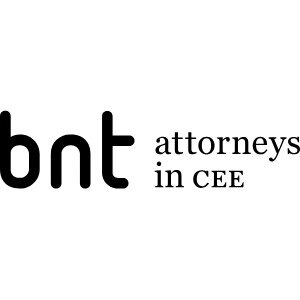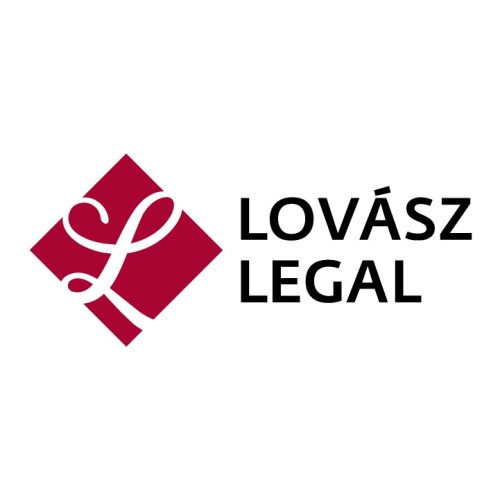Best Restructuring & Insolvency Lawyers in Bratislava
Share your needs with us, get contacted by law firms.
Free. Takes 2 min.
List of the best lawyers in Bratislava, Slovakia
About Restructuring & Insolvency Law in Bratislava, Slovakia
Restructuring and insolvency law in Bratislava, Slovakia covers legal procedures and frameworks for businesses or individuals who are facing financial difficulties and are unable to meet their debt obligations. These laws provide solutions for both creditors and debtors, governing the process of reorganizing a company's structure, assets or debts (restructuring), as well as formal declarations of insolvency (bankruptcy) and subsequent liquidation of assets. The aim of these laws is to provide fair and orderly solutions that can help struggling businesses to recover or, if unsuccessful, ensure an equitable distribution of assets among creditors.
Why You May Need a Lawyer
There are several situations where legal assistance in restructuring and insolvency matters is crucial. If your business is experiencing financial distress, a lawyer can help you evaluate your options, including restructuring debts, seeking temporary protection from creditors, or initiating insolvency proceedings. Creditors who are owed money by insolvent businesses may require legal advice to pursue claims, safeguard their interests, or participate in creditor committees. Individuals facing personal bankruptcy or whose companies are being threatened with insolvency can benefit from guidance on rights, duties, and the implications of different procedures. Given the complexity of local regulations and court processes, an experienced lawyer can help you understand your position, avoid potential liabilities, and achieve the best possible outcome.
Local Laws Overview
Restructuring and insolvency in Bratislava are governed primarily by Slovak national laws, notably the Slovak Insolvency Act (Act No. 7/2005 Coll. on Bankruptcy and Restructuring). Key legal aspects include the definition of insolvency, mandatory duties to file for insolvency in certain circumstances, and the structured steps of bankruptcy and restructuring proceedings. The law distinguishes between bankruptcy, which focuses on the liquidation of assets and distribution to creditors, and restructuring, which seeks to preserve business continuity while reorganizing obligations. Special courts in Bratislava handle these cases, and various deadlines and procedural requirements must be observed. The courts oversee the appointment of insolvency administrators, approval of restructuring plans, creditor meetings, and the conclusion of proceedings.
Frequently Asked Questions
What is the difference between restructuring and bankruptcy in Slovakia?
Restructuring aims to preserve and rehabilitate a business by reorganizing its debts and operations, potentially allowing it to continue functioning. Bankruptcy, on the other hand, involves liquidating the debtor's assets and distributing the proceeds among creditors, usually ending in the cessation of the business.
Who can initiate insolvency proceedings in Bratislava?
Insolvency proceedings can be initiated by the debtor themselves or by one or more creditors. In certain cases, company directors have a statutory duty to file for insolvency once insolvency criteria are met.
What are the signs that a company is insolvent?
A company is insolvent if it is unable to pay its debts as they fall due or if it is over-indebted, meaning its liabilities exceed its assets. The law specifies financial thresholds and timeframes for these conditions.
What is the role of an insolvency administrator?
The insolvency administrator is a court-appointed professional responsible for managing the insolvency process, including asset assessment, creditor communication, proposing restructuring plans, and overseeing any asset sales or distributions.
Can a restructuring plan be rejected?
Yes, a restructuring plan must be approved by the creditors as well as the court. If creditors or the court find the plan unsatisfactory or unfair, it can be rejected, potentially leading to bankruptcy proceedings instead.
Are directors liable for failing to file for insolvency?
Yes, directors have a legal duty to file for insolvency within a certain timeframe upon discovering their company is insolvent. Failure to do so can result in personal liability for company debts and possible criminal sanctions.
What happens to employees during insolvency proceedings?
Employees are protected to some extent under Slovak law. Wages owed before insolvency are considered preferential claims and are prioritized in the distribution of assets. The insolvency administrator will manage employee matters during proceedings.
Do creditors receive all their money back in bankruptcy?
It is unlikely that creditors will recover the full amount they are owed in a bankruptcy process. Distribution of proceeds is made according to the priority of claims, and payments depend on the value realized from the debtor’s assets.
Can individuals file for personal bankruptcy in Slovakia?
Yes, individuals who are unable to meet their debts may file for personal bankruptcy under Slovak insolvency law. There are specific procedures and qualifications that must be met to initiate personal insolvency proceedings.
How long does the insolvency process usually take in Bratislava?
The duration depends on the complexity of the case and whether restructuring or bankruptcy is involved. Simple cases may conclude within a year, while more complex matters involving major restructurings or asset sales can take several years.
Additional Resources
For more information and assistance, the following organizations and resources may be helpful:
- District Court Bratislava I (Krajský súd Bratislava I) - handles insolvency proceedings in the regional area
- Slovak Bar Association (Slovenská advokátska komora) - for directory of qualified insolvency lawyers
- Ministry of Justice of the Slovak Republic (Ministerstvo spravodlivosti SR) - provides legal updates and public registers (such as the Insolvency Register)
- Official Trustees and Insolvency Administrators - some offer guidance and information sessions
- Business Information Centers operated by the Slovak Chamber of Commerce
Next Steps
If you are facing insolvency or considering restructuring in Bratislava, your priority should be to seek prompt legal advice. Early intervention can help you understand your responsibilities and options, reduce personal and corporate liabilities, and improve your chances of a successful resolution. Prepare a detailed overview of your financial situation, collect all relevant documents, and contact a lawyer who specializes in restructuring and insolvency law. During your consultation, be open about your challenges and goals to receive tailored advice. Finally, make sure to follow all legal and procedural requirements as advised by your lawyer to protect your interests as the process unfolds.
Lawzana helps you find the best lawyers and law firms in Bratislava through a curated and pre-screened list of qualified legal professionals. Our platform offers rankings and detailed profiles of attorneys and law firms, allowing you to compare based on practice areas, including Restructuring & Insolvency, experience, and client feedback.
Each profile includes a description of the firm's areas of practice, client reviews, team members and partners, year of establishment, spoken languages, office locations, contact information, social media presence, and any published articles or resources. Most firms on our platform speak English and are experienced in both local and international legal matters.
Get a quote from top-rated law firms in Bratislava, Slovakia — quickly, securely, and without unnecessary hassle.
Disclaimer:
The information provided on this page is for general informational purposes only and does not constitute legal advice. While we strive to ensure the accuracy and relevance of the content, legal information may change over time, and interpretations of the law can vary. You should always consult with a qualified legal professional for advice specific to your situation.
We disclaim all liability for actions taken or not taken based on the content of this page. If you believe any information is incorrect or outdated, please contact us, and we will review and update it where appropriate.














